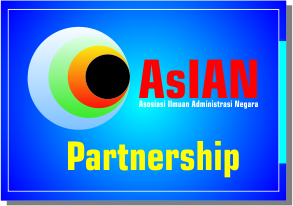Model Bisnis Kawasan Strategis Pariwisata Kota Palu Sulawesi Tengah
DOI:
https://doi.org/10.31334/trans.v9i2.25Keywords:
Tourism Strategy, Special Economic Zone (KEK), Driving License, PAD, and Palu CityAbstract
Palu city is the capital city of Central Sulawesi province bordering with Gorontalo Province. Indigenous people who inhabit the city of Palu is a community of Kaili tribe. Palu City was selected as a Special Economic Zone (KEK) for eastern Indonesia and consists of industrial zone, logistics zone and export processing zone. When viewed from the tourism business, there are several famous destinations such as Sibili Lake, Banua Mbaso, Hanging Bridge, Mosque 'Apung' Argam Bab Al Rahman, and Sis Al Jufrie.
The method used by writer is qualitative with inductive data analysis. The results found that the city of Palu has shown passion in the field of tourism. Palu City presents a variety of new tourist destinations including natural attractions, culinary tours, and cultural tourism. For example Cars Tusuk Satay, Palu Bay, Four Palu Bridge, Solar Eclipse Monument, Nusantara Pavilion, and Palu Nomori Inscription. Then the tourists need to be given free space to satisfy the needs during a vacation.
The business model implemented is that local people can entrepreneurship, gain profit, and create new jobs. Meanwhile, for the government through the Office of Culture and Tourism of Palu City is able to generate Pendapatan Asli Daerah (PAD) in addition to taxes from culinary executed by local communities. To support, the Office of Culture and Tourism of Palu City can hold and coordinate with all the agencies in accordance with their respective work programs. As the development and development of houses to become homestay homes and home industry, the integration of public transportation fleet, and build the concept of Information Management System (SIM) Tourism via online to package the tourism potential of Palu City.
References
Figueroa B., Eugenio, and Rotarou, Elena S. 2016. Tourism as the Development Driver of Easter Island: the Key Role of Resident Perceptions. Island Studies Journal, Vol. 11, No 1, pp. 245-264
Kompas.com. 19 Januari 2011. Palu Bakal Punya Masjid Terapung. Diakses dari http://regional.kompas.com/read/2011/01/19/20054943/Palu.Bakal.Punya.Masjid.Terapung
Kompas.com. 27 Februari 2012. Palu Bisa Menjadi Pusat Budaya Sulawesi. Diakses dari http://oase.kompas.com/read/2012/02/27/16481582/Palu.Bisa.Menjadi.Pusat.Budaya.Sulawesi
Kompas.com. 1 Januari 2014. Asam Pedas Kaledo Khas Palu. Diakses dari http://travel.kompas.com/read/2014/01/01/0928497/Asam.Pedas.Kaledo.Khas.Palu
Ministry of Economic Development of Sri Lanka. 2011-2016. Tourism Development Strategy
Moleong, Lexy J. 2012. Metodologi Penelitian Kualitatif. Bandung: Remaja Rosdakarya
Pemerintah Kota Palu. 2009. Palu Kota Dua Wajah. Palu: CACDS disarikan dari Wikipedia
Peraturan Pemerintah Nomor 31 Tahun 2014.
Profil Singkat Pemerintahan Kota Palu. 2016
Sugiyono. 2012. Metodologi Penelitian Bisnis. Cetakan Kelima Belas. Bandung: Alfabeta
Downloads
Published
Issue
Section
License

This work is licensed under a Creative Commons Attribution-ShareAlike 4.0 International License
Please find the rights and licenses in Transparansi : Jurnal Ilmiah Ilmu Administrasi By submitting the article/manuscript of the article, the author(s) agree with this policy. No specific document sign-off is required.
- License
The commercial use of the article will be governed by the Creative Commons Attribution license as currently displayed on Creative Commons Attribution-ShareAlike 4.0 International License.
2. Author(s)' Warranties
The author warrants that the article is original, written by stated author(s), has not been published before, contains no unlawful statements, does not infringe the rights of others, is subject to copyright that is vested exclusively in the author and free of any third party rights, and that any necessary written permissions to quote from other sources have been obtained by the author(s).
3. User Rights
Transparansi : Jurnal Ilmiah Ilmu Administrasi spirit is to disseminate articles published are as free as possible. Under the Creative Commons license, Transparansi : Jurnal Ilmiah Ilmu Administrasi permits users to copy, distribute, display, and perform the work for non-commercial purposes only. Users will also need to attribute authors and Transparansi : Jurnal Ilmiah Ilmu Administrasi on distributing works in the journal and other media of publications.
4. Co-Authorship
If the article was jointly prepared by more than one author, any authors submitting the manuscript warrants that he/she has been authorized by all co-authors to be agreed on this copyright and license notice (agreement) on their behalf, and agrees to inform his/her co-authors of the terms of this policy. Transparansi : Jurnal Ilmiah Ilmu Administrasi will not be held liable for anything that may arise due to the author(s) internal dispute. Transparansi : Jurnal Ilmiah Ilmu Administrasi will only communicate with the corresponding author.
5. Miscellaneous
Transparansi : Jurnal Ilmiah Ilmu Administrasi will publish the article (or have it published) in the journal if the article’s editorial process is successfully completed. Transparansi : Jurnal Ilmiah Ilmu Administrasi editors may modify the article to a style of punctuation, spelling, capitalization, referencing and usage that deems appropriate. The author acknowledges that the article may be published so that it will be publicly accessible and such access will be free of charge for the readers as mentioned in point 3.
Every accepted manuscript should be accompanied by "Copyright Transfer Agreement"prior to the article publication.











